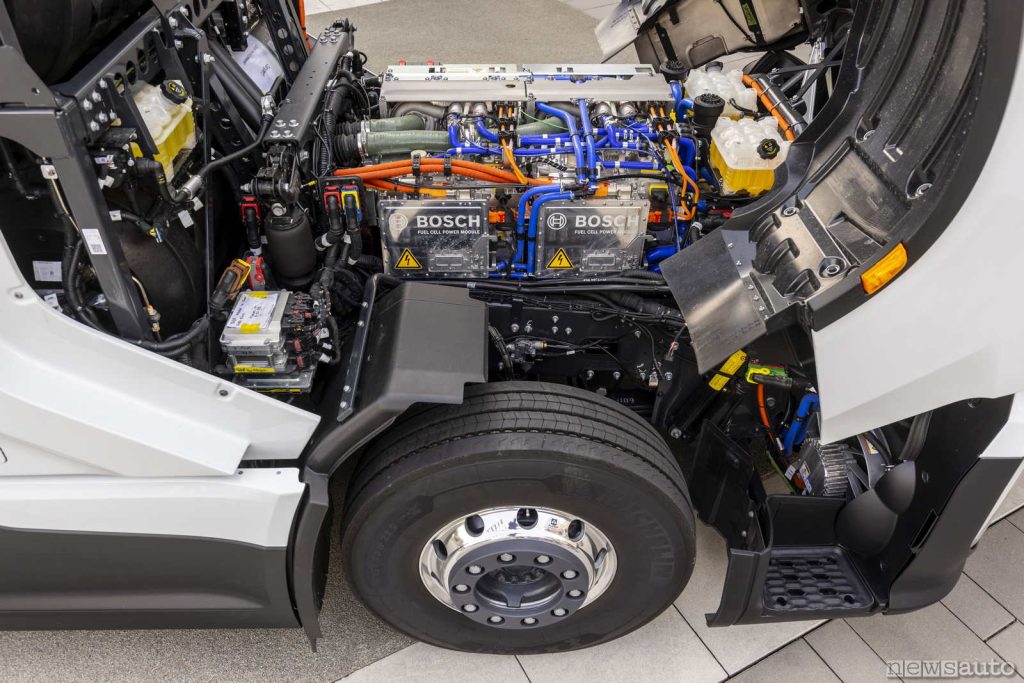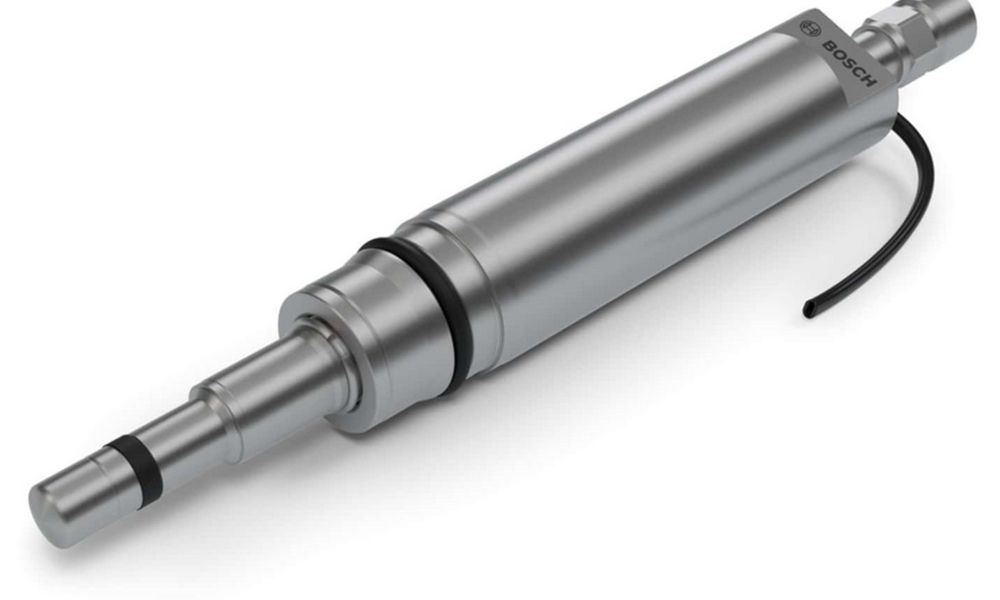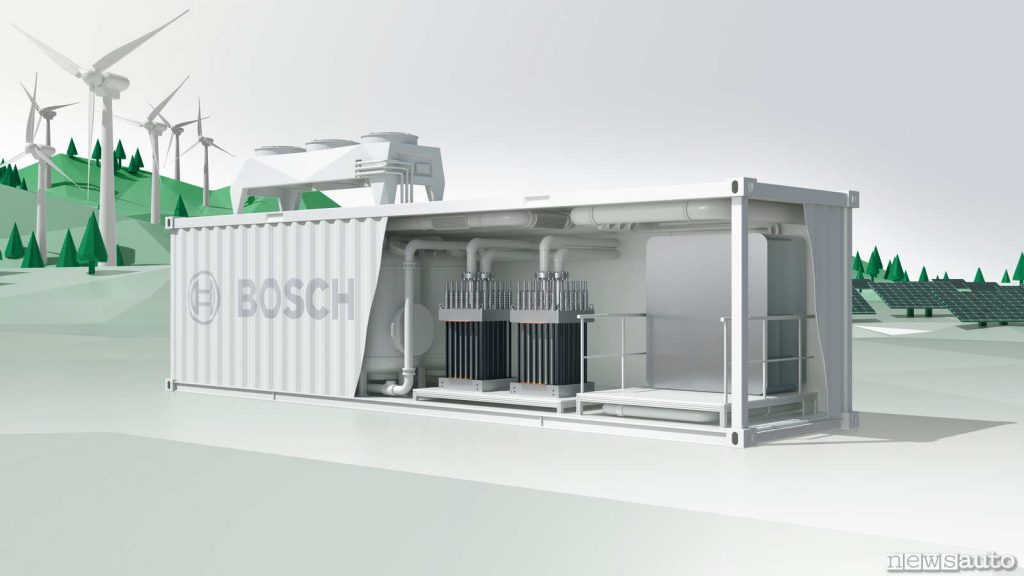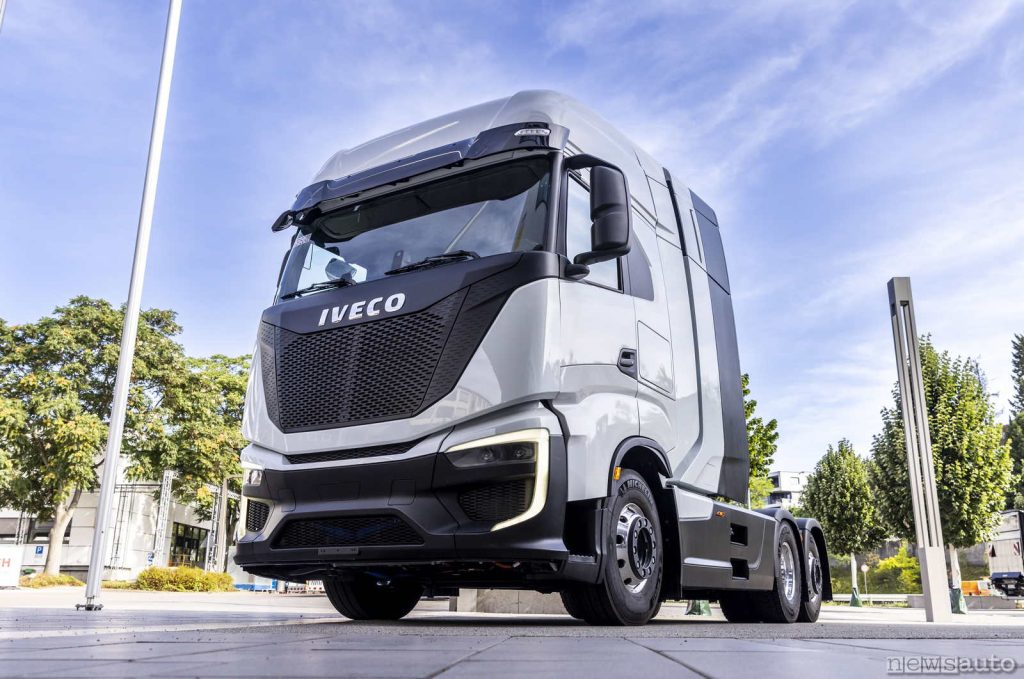A new hydrogen-powered internal combustion engine will arrive later this year. Bosch he announced to the CES 2024 in Las Vegas the development of a new engine based on the mechanics of the diesel engine, which will mount specific injectors for hydrogen. Bosch's hydrogen engines will be developed primarily for commercial and industrial vehicles, as well as for the agricultural sector, with performance completely similar to that of diesel engines.
Hydrogen powered diesel engine
With Bosch hydrogen technology, diesel engines can safely use hydrogen as fuel. The hydrogen, stored in a pressure tank, is injected into the engine cylinder via an injector directly into the combustion chamber and ignites spontaneously on contact with air (like diesel), producing mechanical energy. All this is possible thanks to the new Bosch hydrogen injector that operates without the need for additional lubrication.

Bosch has also developed a engine control system (ECU) optimized for hydrogen. This control system regulates the injection of hydrogen, as well as combustion through a series of information including that coming from the exhaust system in order to obtain optimal performance and reduced emissions.
Hydrogen diesel injector
The real innovation of the Bosch H2 hydrogen engine is represented by thespecific injector for hydrogen. Bosch engineers have come up with a solution that employs sophisticated design to maintain the separated fluids inside the injector, using different coating technologies. In fact, in a traditional diesel engine, the injector is constantly lubricated by the fuel to function correctly.

So to ensure its reliability, hydrogen engine engineers faced two challenges: the lack of lubrication normally provided by diesel fuel and the risk of hydrogen reaction with the injector materials.
Advantages
Bosch's hydrogen technology has some advantages over conventional diesel engines. First, hydrogen has a high energy density; meaning it can provide more power with less fuel. Secondly, hydrogen does not produce particulate emissions or nitrogen oxides, which are two of the main causes of air pollution.
Bosch hydrogen technology
Through its Mobility division, Bosch is significantly focusing on and developing not only the growing hydrogen mobility sector fuel cell systemsbut also the new hydrogen fueled heat engine, which is called H”e”. Bosch will invest a total of almost 2.5 billion euros in hydrogen technology between 2021 and 2026. The company employs 3,000 people in this sector and expects sales for 5.3 billion dollars by 2030 thanks to hydrogen fuel cells, internal combustion engines that use hydrogen and the electrolysers that produce it.

Interest in hydrogen internal combustion engines is increasing, especially after the decision of European Commission to consider them zero-emission, thus equating them to electric motors.
This innovation is part of the German company's strategy for decarbonisation of mobility, focusing on two complementary solutions: electrification and hydrogen. In fact, Bosch believes that hydrogen will be crucial to meeting the global energy demand efficiently and sustainably, also promoting the storage of renewable energy.

These hydrogen hybridized diesel engines are being tested in commercial vehicles. Bosch plans to start series production of this technology by 2024.
Read also,
→ What are hydrogen cars?
→ Hydrogen cars where are we at?
→ Hydrogen cars between evolution and perplexity
→ Mobility of the future hydrogen car
→ Toyota Mirai autonomy record 1,000 km
→ Hydrogen cars Bosch is working on fuel cells
→ News and updates on hydrogen cars
→ Visit EV Driving
→ What do you think? Drop by discussions on the FORUM!
#Diesel #engine #transformed #hydrogen #Bosch #technology
